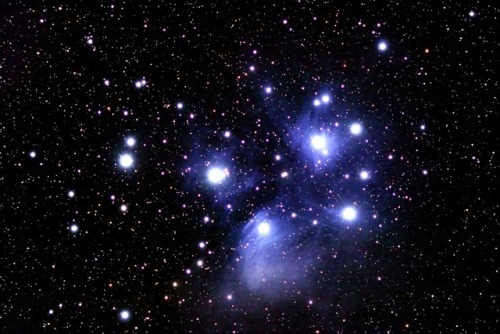Saturn...
Saturn...
Took the telescope rig out to see if I could finally get a look at Saturn this Summer. It seemed every time I wanted to go out, it was cloudy, rainy, or I was already exhausted from the day. Other times, it would be a perfect evening, but I was nowhere near my home and scope.
On Tuesday, 8/6/2019, I saw the rings of Saturn for the first time through my own scope. There’s almost an emotional aspect added when it’s your own equipment you’re observing through. Anyway, here is my first ever capture of Saturn taken with an iPhone 8 and a Celestron 127slt mak.

More Posts from Jbrackettssa and Others

Having a little fun inspired by those old school READ posters. #astronomy #backyardastronomy #space https://www.instagram.com/p/CDVPhCdHp_Y/?igshid=1wubxh6imrtxd


Finished!!! #lego #nasa #iss #internationalspacestation #solarsystemambassadors https://www.instagram.com/p/CbIIROlu0kJ/?utm_medium=tumblr
OSIRIS-REx Captures Laser 3D View of Bennu
NASA - OSIRIS-REx Mission patch. April 8, 2019
This three-dimensional view of asteroid Bennu was created by the OSIRIS-REx Laser Altimeter (OLA), contributed by the Canadian Space Agency, on NASA’s OSIRIS-REx spacecraft. From Feb. 12 through 17, OLA made more than 11 million measurements of the distance between OSIRIS-REx and Bennu’s surface as the spacecraft flew less than 1.2 miles (2 km) above the surface – the closest orbit ever achieved by spacecraft. OLA obtained these measurements by firing laser pulses at Bennu and measuring the amount of time it takes for the light to bounce off the asteroid’s surface and return to the instrument. That time measurement is then translated into altitude data. Using this data, the OLA team created the 3-D model of Bennu’s surface.
OSIRIS-REx orbiting Bennu
The colors represent the distance from the center of Bennu: dark blue areas lie approximately 197 feet (60 meters) lower than peaks indicated in red. Some parts of the asteroid have not yet been measured, which creates gaps in the image. OLA will take nearly a billion more measurements throughout 2019 to complete the first-ever high-resolution 3D lidar map of a near-Earth asteroid. OSIRIS-REx (Origins Spectral Interpretation Resource Identification Security Regolith Explorer): http://www.nasa.gov/mission_pages/osiris-rex/index.html Animation, Image, Text, Credits: NASA/Karl Hille/University of Arizona/CSA/York/MDA. Greetings, Orbiter.ch Full article

First steps! Looking forward to contributing to the NASA Psyche Mission in the future! @nasapsyche #nasa #nasapsyche #space #asteroid #arizonastateuniversity #nasajpl https://www.instagram.com/p/B--pjChHW8Q/?igshid=o2p8g1zredsy

Jupiter Day/Night Terminator - Juno Mission PJ19 #nasa #junomission https://www.instagram.com/p/BxXWlCVnhPx/?utm_source=ig_tumblr_share&igshid=12gkastdkd9n6

When you’re the daughter of a NASA/JPL Solar System Ambassador, you get to see and read about cool stuff like this Space Shuttle tire at @tellusmuseum #TellusMuseumSummerFun (at Tellus Science Museum) https://www.instagram.com/p/CTApARJpoYI/?utm_medium=tumblr

Pleiades
-
 jessybecerriltt liked this · 4 years ago
jessybecerriltt liked this · 4 years ago -
 lxstinspace liked this · 5 years ago
lxstinspace liked this · 5 years ago -
 mloyasworld liked this · 5 years ago
mloyasworld liked this · 5 years ago -
 jbrackettssa reblogged this · 5 years ago
jbrackettssa reblogged this · 5 years ago -
 mileysyrups liked this · 5 years ago
mileysyrups liked this · 5 years ago -
 healing-stars reblogged this · 5 years ago
healing-stars reblogged this · 5 years ago -
 jbrackettssa reblogged this · 5 years ago
jbrackettssa reblogged this · 5 years ago

I host public outreach events about the science and research taking place everyday on the International Space Station. A favorite event of mine is called "Story Time From Space", where astronauts onboard the ISS read children's stories featuring space science and STEM topics. (Opinions are my own.)
187 posts
